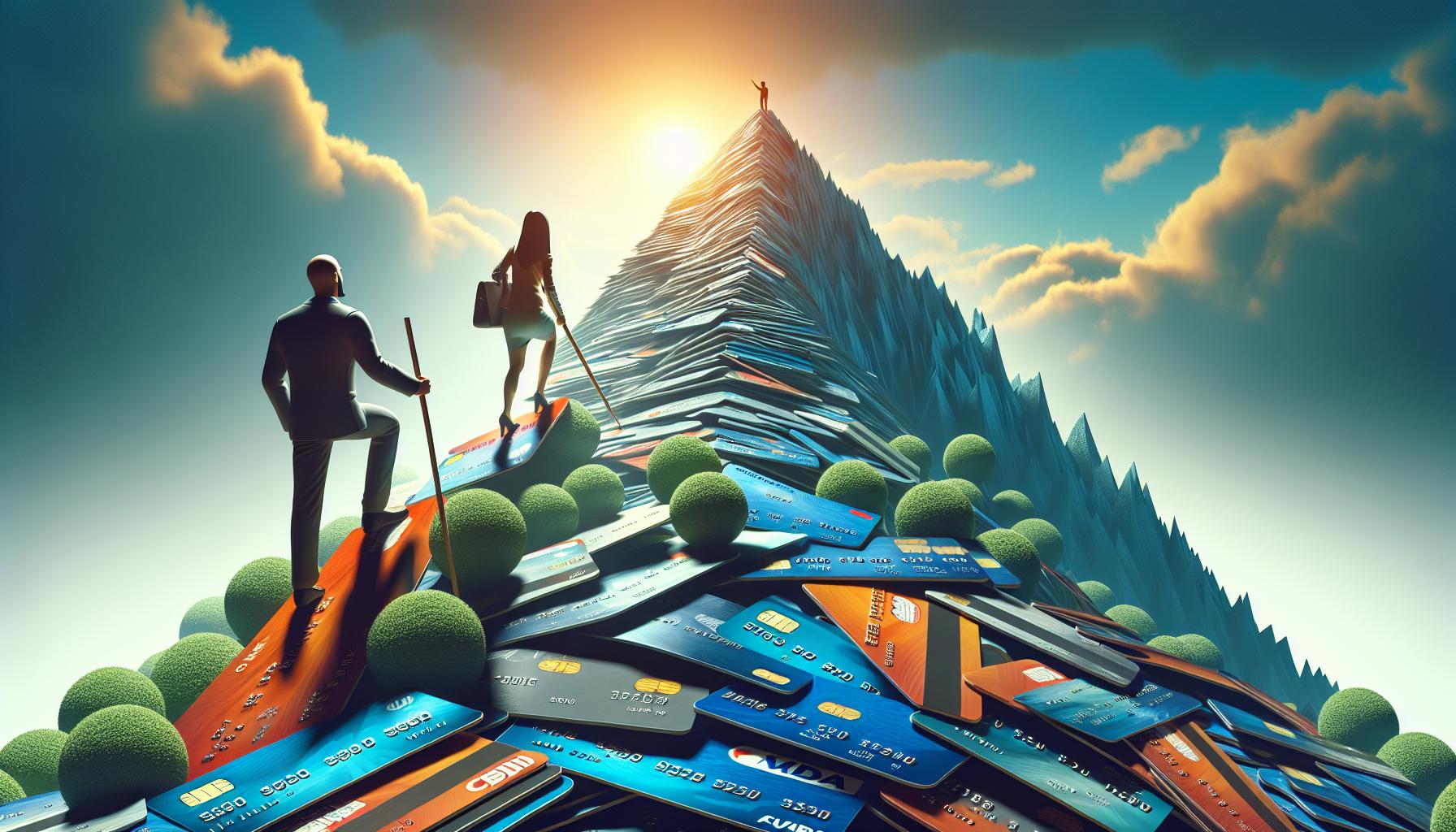
Breaking Down the Basics of Credit Card Debt
Are you tangled up with concerns about credit card debt? It’s often an intimidating subject, but fear not! This article will shed some light on what credit card debt is, how it escalates, and how you can manage it effectively. Whether you merely want to understand it or are currently struggling with it, we’ll help you view it less as a monstrous mountain and more as a manageable molehill. We’ll delve deeper into various aspects including factors causing it, its consequences, potential pitfalls, and practical tips for minimizing and conquering it.
Anatomy of Credit Card Debt
Credit card debt, in its simplest form, pertains to the outstanding balance you owe your credit card issuer. Shopping sprees, vacations, emergency bills – the standard credit card is tirelessly at your service. Its convenience is undeniable. But it’s here ministrations make mischief. The dreaded ‘debt’ label only appears when you’re unable to pay off your balance in full by the due date, and instead opt for minimal payments. This is where high-interest rates take their toll, making the balance balloon over time.
The Debt Spiral
Here’s how it works: shark-like interest rates submerge you deeper into the depths of dues. Every month when you make only the minimum payment, the residual amount is subjected to those high rates, fattening up your total debt. The wheel of fortune, it seems, then spins in only one direction – towards a burgeoning pile of monthly bills.
Tripping Over the Pitfalls
The pitfalls of crippling credit card debt can extend beyond monetary concerns, impacting other aspects of life like your credit score and your mental peace. It’s a quicksand that can swallow up your financial security if not maneuvered carefully. Moreover, missing payments worsens the scenario, leading to exorbitant late fees, higher interest rates, and plunging credit scores.
The Mental Toll
It’s not just digits on a screen; habitual late payments and persistent collectors call can cause significant mental stress, giving a new spin to the old saying, ”More money, more problems.”
Escaping the Debt Dungeon
Timely payments, paying more than the minimum, keeping low balances, and regular scrutiny of your credit reports – these could be your trusty weapons while battling credit card debt. Understand that credit cards are tools, not magic wands. The key is to use them judiciously and remember that ’credit’ doesn’t connote ‘free money.’
Harnessing Help
For those ultimately unable to untangle the tendrils of this financial Wraith, options like debt consolidation, credit counseling, debt management plans, or bankruptcy can be potential escape routes. Remember, asking for help isn’t a mark of defeat. In fact, it can be a powerful step toward reclaiming your financial freedom.
Conclusion
At the end, understanding credit card debt is all about realizing that it’s a demanding master rather than a generous provider. You can either let it stir you towards a storm, or harness it to sail smoothly on your financial journey. The choice is yours to make.
Frequently Asked Questions
1. What happens if I can’t pay my credit card debt?
If you can’t pay your credit card debt, the card issuer might sell your debt to a collection agency. It could harm your credit score and result in regular calls from debt collectors.
2. How can I lower my credit card debt?
You can lower credit card debt by paying more than the minimum due amount, using balance transfer cards, or opting for debt consolidation.
3. Does credit card debt go away when you die?
Debts that are solely yours do not automatically transfer to your next of kin when you die, but they may reduce the amount left in your estate.
4. How long does it take to pay off the credit card debt?
The time it takes to pay off credit card debt entirely depends on your balance, interest rate, and how much you pay each month.
5. Can I go to jail for not paying my credit card debt?
No, you can’t go to jail for not paying your credit card debt. However, if you’re sued and fail to attend court, there could be legal repercussions.

